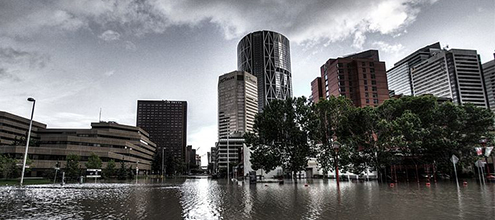
Meaningful climate policy: Can’t someone else do it?
To a narrow, yet vocal contingent of Canadians, taking action on climate change is misguided or downright foolish. Why should Canada do anything about climate change? How can a country with only 0.5% of the world’s population stop the glaciers from melting or the oceans from warming? Why should Canadians put their necks out and shoulder the economic burden?
These arguments can make environmentalists scream into their pillow at night. Yet they are fair questions that deserve answers. This blog revisits the main arguments for meaningful climate policy.
No one likes a free-rider
First off, it’s no longer about being a first mover.
The world is moving ahead with climate action. China has created the world’s largest cap-and-trade system; several U.S. states are filling the void of federal leadership; the European Union is strengthening its carbon market; both South Africa and Singapore expect to have carbon taxes by 2018 and 2019, respectively; and cities around the world are stepping up.
Choosing to backpedal on climate policy is choosing to take a free ride on progress elsewhere.
But just like the guy who snuck into Black Panther last week without paying (you know who you are), no one likes a free-rider. As the world moves ahead to address climate change, Canada—as a prosperous and wealthy nation—needs to pull its weight. Otherwise we encourage other countries to do the same, undermining the critical, yet delicate global agreement to reduce emissions. A few bad apples can spoil the bunch.
There’s also an economic case against free-riding. Relying on others to do the heavy lifting means that those countries could impose their climate policies on us with tariffs and other trade restrictions. If we don’t act, we risk harming our competitive advantage in the world economy.
Canadian GHG emissions matter, whether we’re leading or lagging
Even though our emissions are only part of the global problem, every single tonne of GHG we produce has a cost in terms of global impacts of climate change.
By the same token, every tonne of emissions we avoid has benefits in terms of mitigating global costs of climate change. Reducing our emissions helps create a more stable climate for future generations and reduce the likelihood of catastrophic climate events.
Better to pay a little now than a lot later
Acting today also means a smoother, gradual transition to a low-carbon economy. This gives emissions-intensive businesses time to adjust to changing markets, reducing the risk of economic shocks in the future. The global transition is already well underway, so it’s better (and less costly) to move with the current rather than swim against it.
A clear, gradual transition also helps us make smarter investments. Big investments by governments, businesses, and households—such as new infrastructure, machinery, buildings, and vehicles—can last decades. If we have certainty with where climate policy is going, we can avoid investing in things that may soon become uneconomic. Investing in a new coal mine 20 years ago may have offered a handsome return. Today? Not so much.
Taking smart action
Canada has already laid the groundwork for meaningful climate policy. By early 2019, each province will have a price on carbon emissions that will rise steadily over time. And as we’ve long-argued, a broad and stringent carbon price is the cheapest and most effective way to reduce emissions. Governments are adopting a suite of other policies that will move us closer to our emissions targets, but we’ve also argued that these other policies should be cost-effective.
This work is only just beginning, however. Canada is still a long way off from our Paris targets. Closing the gap will require a continued focus on developing smart, meaningful climate policy that also makes economic sense. But these policies are only possible if Canadians demand them from their governments.
The costs of inaction are becoming increasingly clear, and we have a roadmap to get to where we want to go. As a first step, let’s start asking how Canada can act on climate change, and not why.




Comments are closed.